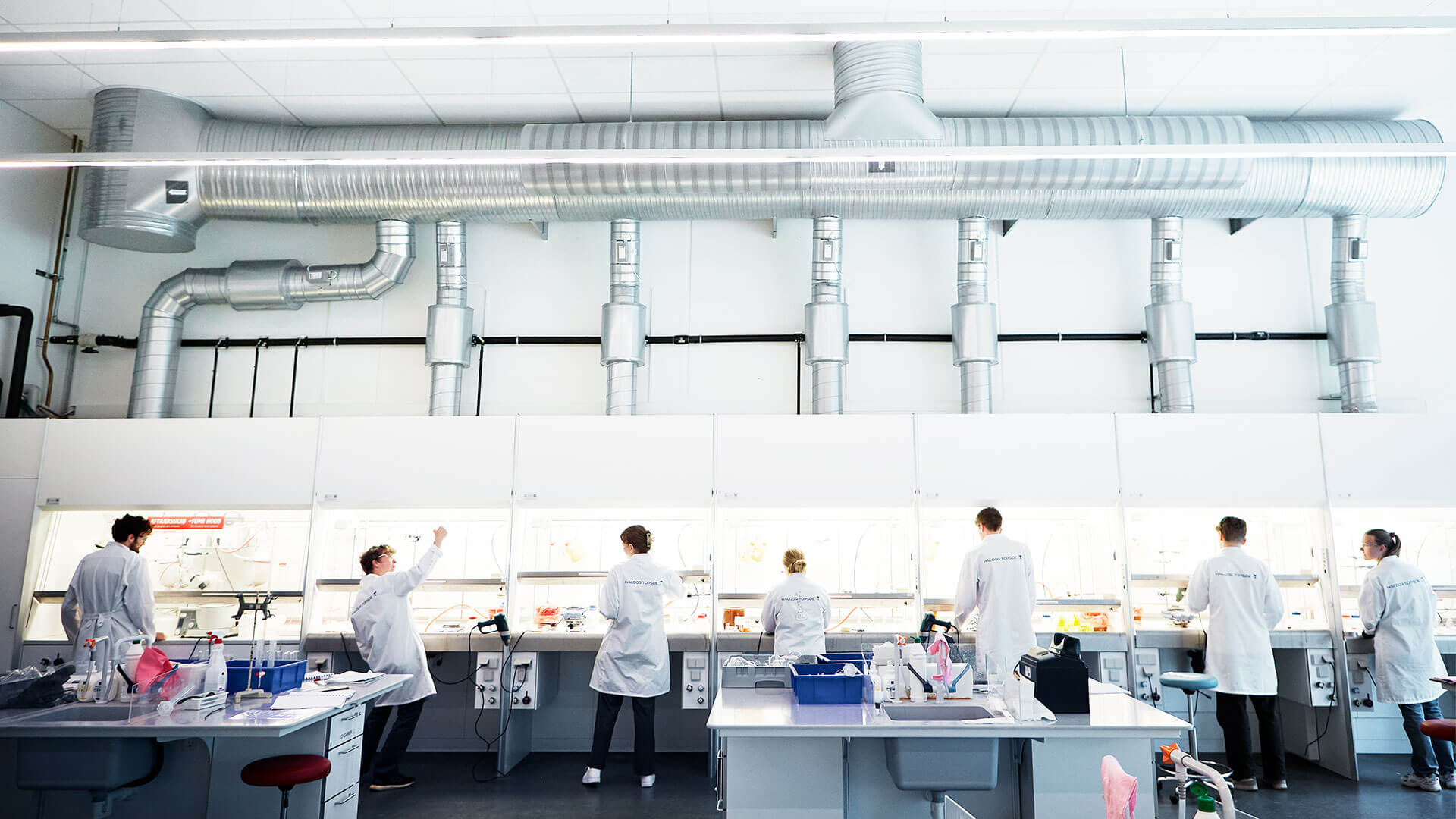Bachelor of Science (BSc) in Chemistry and Technology

The world is largely made up of chemical processes and reactions. Chemical products are central to society and help create a good foundation for living. Right now humanity is faced with some enormous challenges. Climate change and pollution have to be brought under control, and we must find new drugs to combat diseases that are currently seen as incurable. As a chemical engineer you can help solve some of these challenges.
What will you learn?
You will learn to understand or predict why and how different substances and materials will react in a given chemical process, so you are able to create new, improved products and production methods. As a student on the Chemistry and Technology study programme, you will acquire a fundamental knowledge of chemistry, physics, and mathematics from lessons in theory, combined with project work and practicals in the laboratory.
You will be introduced to basic chemistry and its technological applications. You will work on chemical analysis and synthesis, and study the properties and chemical reactions of substances. You will learn the principles of chemical and biochemical product development and production, which must be done efficiently from a technical and economical viewpoint, while considering the environment and safety.
Chemistry is a subject where theory and practical experiments go hand in hand. You will learn to think creatively and use your knowledge of mathematics, physics, and chemistry to develop concrete products and production methods.
Study programme structure
The BSc in Chemistry and Technology has a set programme for the first few semesters, so you acquire a good understanding of the field of chemical engineering. You will do subjects in general chemistry, inorganic chemistry, physical chemistry, and laboratory methodology. Later in the programme you will choose electives and specialize. Various recommended courses have been defined which you can follow, but you can also combine subjects based on your interests. For example, you can combine chemistry with elements from the world of engineering and technology, or focus on economics or management.
Career opportunities
With further studies you can graduate with an MSc in Chemistry and work in the pharmaceutical, petrochemical, or material technology industries, the energy sector, government administration, or inspecting and monitoring chemical production.
Read more about the BSc programme in Chemistry and Technology (in Danish).
Guest student at DTU
With more than 400 courses in English from the third year onwards, DTU offers a uniquely flexible course structure.